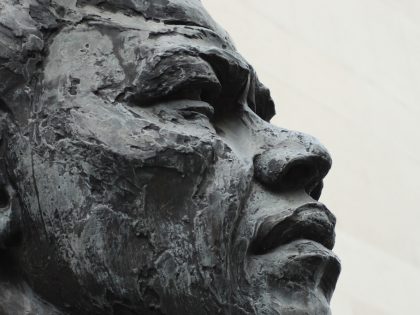Liberation after independence
On AIAC Talk this week, we mark Independence Day in Sierra Leone, and Freedom Day in South Africa—but what does freedom really mean on the ground in these countries? Watch the show live Tuesday on YouTube.

Image credit Steve Evans via Flickr CC BY-NC 2.0.
April 27th is a significant date for two countries on the African continent, separated by more than 5,000 km across the Atlantic ocean. On this day, both Sierra Leone and South Africa celebrate emancipation from minority rule. For Sierra Leone, it was becoming freed from the British in 1961, and for South Africa, the end of apartheid in 1994, some several decades after it became a white republic in 1961. On occasions like these, the national mood is typically festive and nostalgic, replete with commemoration events where those now in power remind us all about the tremendous sacrifice and hardship undergone during the struggles of the past. But, against the common backdrop of enduring poverty, corruption, political dysfunction, and elite capture, ordinary citizens are often left wondering if the struggles have really ever ended.
The period between the moment of emancipation and the contemporary moment marking it has arguably become consequential for considering both country’s fates. In Sierra Leone, that period has been longer as the idea of freedom was at the core of Sierra Leone’s founding over two hundred years ago, and the contestation over the meaning of that concept shaped its political trajectory since. The capital, Freetown, was first founded in the late eighteenth century by British abolitionists, wanting to find a home for both the undesirable poor blacks of England and newly freed former slaves who had helped them fight the American war of independence. This would set up a unique relationship between Sierra Leone and the British empire. The colony sat at the head of the British colonial administration in West Africa, with a “westernized” black population fit to fill the ranks of the bureaucracy in its colonizing project. A negotiated independence, won without mass struggle, would leave the work of decolonization incomplete, and a series of coups and military dictatorships, would culminate in a devastating civil war between 1991 and 2002. Following that, Sierra Leone took on another epochal mark, becoming a “post-conflict state.” Other than a brief re-appearance to the world as one of the hardest hit places during the Ebola epidemic between 2013 and 2016, plus a general election in 2018, there has been little interest from the international media to go deeper into what’s behind either the successes and failures of the Sierra Leonean national project.
In South Africa, the fascination has often gone the other way—focusing on the country’s supposed peace. Indeed, the post-apartheid transition period when the African National Congress (ANC) spearheaded negotiations with the National Party are touted as remarkable for avoiding a collapse into civil war. But South Africa is extremely violent. As Africa Is A Country contributing editor Sisonke Msimang recently wrote for Lapham’s Quarterly, “After the historic 1994 elections that installed the ANC as the ruling party, there were hopes that the violence would end. Murders and rapes decreased in the years that immediately followed, but violent crime remained high. The gruesome statistics have once again begun to rise.” And while the mainstream South African media likes to portray this violence as cultural pathology, it too arises from deeper social and political realities, being most pronounced when citizens confront the post-apartheid state on its failures. One of many other examples, the 2012 Marikana massacre especially cemented the end of this South African exceptionalism.
So on this week’s AIAC talk we’re asking what liberation comes after independence. We are joined by Sisonke Msimang, Oluwaseun Babalola, and Ishmael Beah. Sisonke is a South African writer whose work is focused on race, gender, and democracy, and on top of writing for a range of international publications, she is the author of Always Another Country: A memoir of exile and home and The Resurrection of Winnie Mandela (2018). Oluwaseun is a Sierra Leonean-Nigerian-American filmmaker; she founded DO Global Productions, a video production company specializing in documentaries. Her focus is to create and collaborate on projects across the globe, while providing positive representation for people of color; and Ishmael, born in Sierra Leone, is the New York Times bestselling author of A Long Way Gone, Memoirs of a Boy Soldier and Radiance of Tomorrow, A Novel, with his latest novel Little Family released in 2020.
Join us for the live show on Tuesday at 18:00 in Johannesburg, 16:00 in Freetown and 12:00 in New York.
In our last episode, we discussed “Football and empire”, looking at the historical entanglement of South African football with English football, and what that tells us about politics and sport. We were joined by Chris Bolsmann and Tony Karon, and also touched on what the (now defunct) European Super League meant for the future of football. That episode is available this week on our YouTube channel. Subscribe to our Patreon for all the episodes from our archive.



